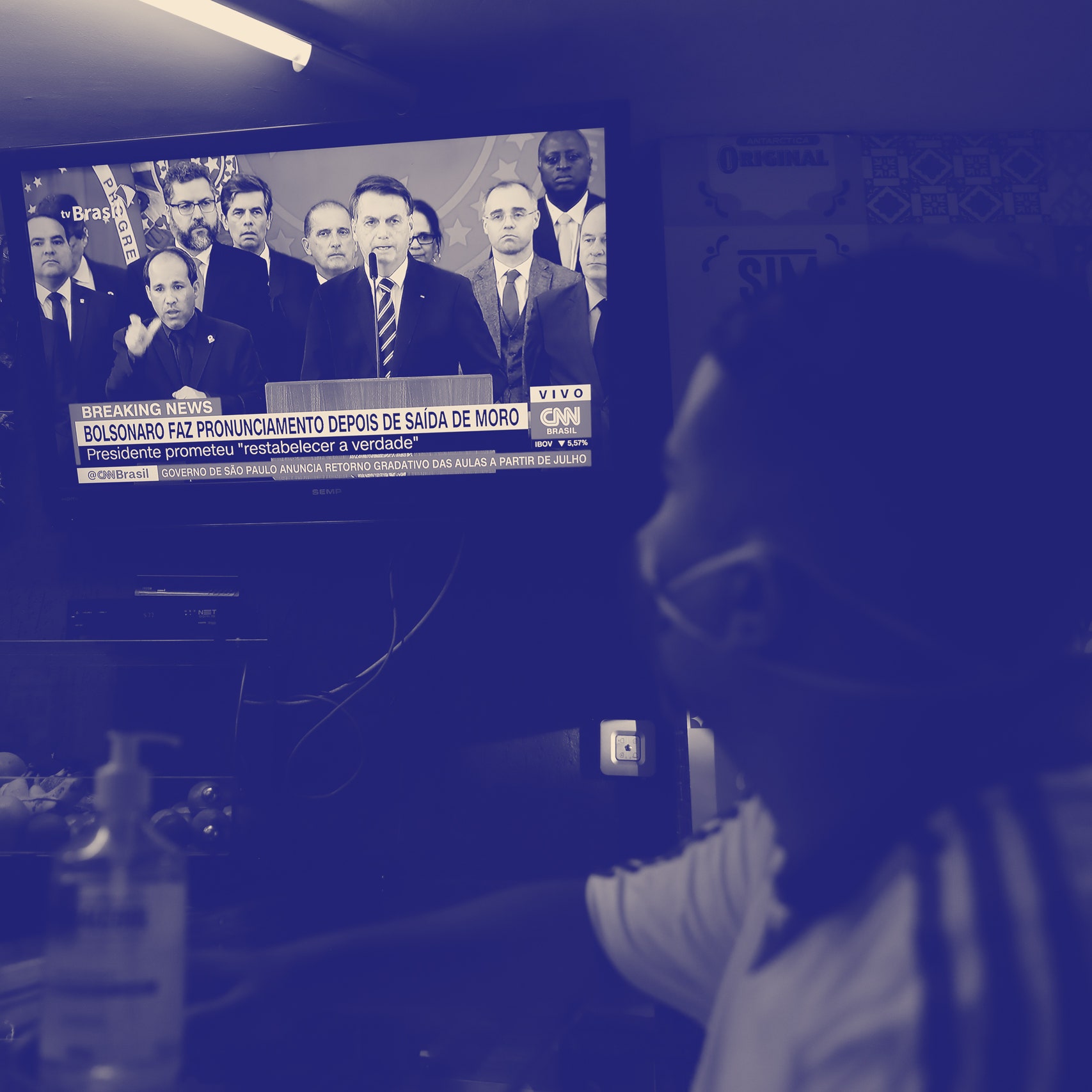RIO DE JANEIRO, BRAZIL – President Jair Bolsonaro (no party) comfortably leads the digital popularity ranking among 13 national political names in 2020. Bolsonaro is followed by TV host Luciano Huck.
The metric prepared by Quaest Consulting assesses the performance of public figures on Facebook, Instagram, Twitter, YouTube, Wikipedia and Google platforms.

For the ranking, 13 prominent profiles in the national scenario were analyzed and should play a relevant role in the 2022 elections, despite not having yet announced their candidacy.
In addition to the President Bolsonaro and TV host Huck, Quaest assessed the social network popularity of ex-president Lula (PT), governors João Doria (PSDB-SP) and Flávio Dino (PCdoB-MA); ex-candidate to the São Paulo City Hall Guilherme Boulos (PSOL); ex-presidential candidates Fernando Haddad (PT), Ciro Gomes (PDT), João Amoêdo (Novo), Alvaro Dias (Pode) and Marina Silva (Rede); Chamber of Deputies president Rodrigo Maia (DEM-RJ) and federal deputy Alessandro Molon (PSB-RJ).
In the year in which the coronavirus limited face-to-face interactions and social networks gained ground, Bolsonaro, who for years has maintained a strong online presence and makes weekly live streams, led with ease.
The month of February was the exception, when the gap between second-placed Huck was only 4.6 points. For the remainder of the year, however, the difference between the two ranged between 20 and 30 points.
Lula, placed third, performed better on social media during the first semester. Nevertheless, he is well below the TV host, with over 30 points between the two.
Flávio Dino, ranked fourth, stood out in April, May and June, the peak of the pandemic. At the time, the governor of Maranhão was distinguished for advocating social isolation measures to fight Covid-19 and opposing Bolsonaro’s discourse, who downplayed the impact of the disease. In December, Dino achieved his best score and leaned on Lula.
Despite also focusing on clashing with Bolsonaro, Doria was not as successful as the left-wing names. The São Paulo governor ranks eighth behind Boulos, Haddad and Ciro. Next come Molon, Amoêdo, Maia, Alvaro Dias and Marina, respectively.
According to Felipe Nunes, professor of political science at the Federal University of Minas Gerais (UFMG) and director of Quaest, taking on Bolsonaro in the digital arena is not easy and requires a change in strategy by his opponents.
“To compete with Bolsonaro, the left and center will need to shift from their current monotonicity and promote a digital debate that is less verbal and more interactive. But this change has to start soon because the 2022 campaign has already begun”.
For the preparation of the Digital Popularity Index, six network aspects are monitored: popularity (number of followers), engagement (comments and likes by post), mobilization (sharing of posts), relevance (positive and negative reactions to posts), presence (number of social networks in which the subject is active) and interest (volume of Google, Youtube and Wikipedia searches).
A statistical model measures and calculates the importance of each aspect, and the candidates analyzed are ranked from 0 to 100, where 100 represents maximum popularity. Metrics are relational, i.e., they vary depending on the people being compared.
During the elections, Folha newspaper published the Digital Popularity Index of candidates for mayor in São Paulo, Rio de Janeiro, Belo Horizonte, Salvador and Curitiba on a weekly basis. Quaest also monitored the scenario in other capitals and in 95 cities of different dimensions.
According to the consultancy, on average, 81% of candidates who led the Digital Popularity Index won in the first round or reached the second.

